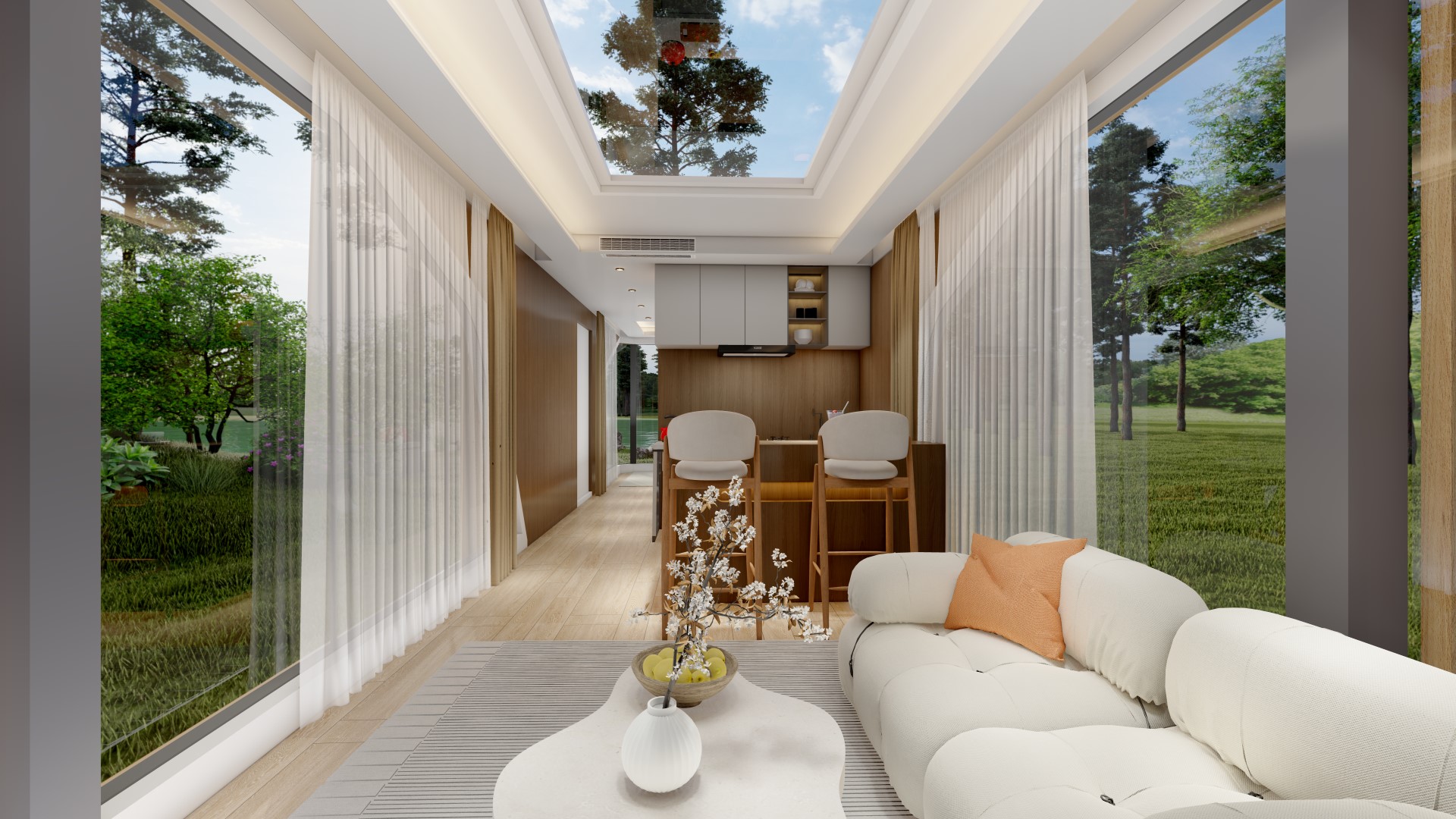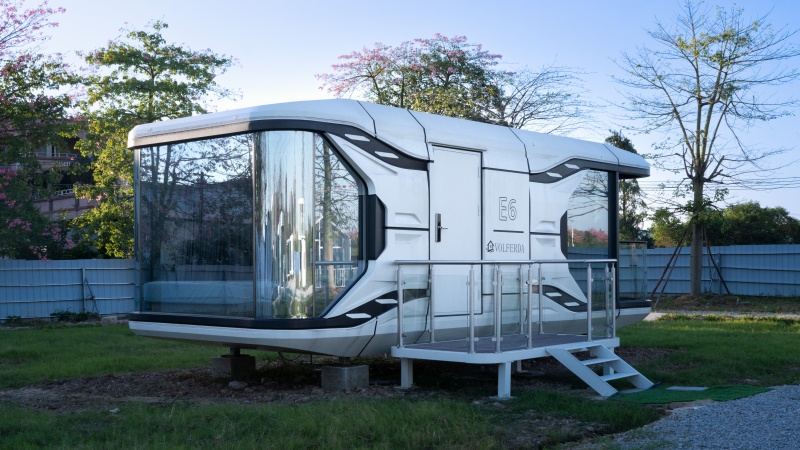Why Modular Homes Are the Future of Sustainable Living
Modular homes are significantly recognized as a critical remedy for sustainable living, supplying a blend of effectiveness, cost-effectiveness, and environmental benefits. Their building and construction in regulated environments dramatically minimizes waste and improves precision, while the potential for integrating sophisticated energy-efficient systems positions them as a forward-thinking option in housing. Furthermore, the adaptability of modular layouts enables the assimilation of lasting technologies and materials tailored to individual demands. As we browse the obstacles of urbanization and environmental sustainability, one have to take into consideration just how these homes might redefine our approach to living rooms.
Environmental Benefits of Modular Residences
The environmental advantages of modular homes stand for a significant step towards sustainable living. These homes are created in regulated factory setups, which considerably decreases waste created throughout the building process. By optimizing materials and lessening excess, modular building adds to a much more efficient use sources contrasted to conventional building approaches.
Additionally, modular homes are commonly designed with energy performance in mind. Numerous incorporate innovative insulation techniques, energy-efficient windows, and sustainable materials, adding to reduced power consumption. This can lead to decreased greenhouse gas discharges over the lifespan of the home, improving its overall ecological account.
The capacity to transportation and set up modular components on-site also decreases the carbon footprint related to construction logistics. Furthermore, several modular homes are built to be quickly upgradeable and versatile, enabling house owners to implement sustainable innovations, such as solar panels and energy-efficient heating unit, with time.
Eventually, the environmental advantages of modular homes not only advertise lasting living yet likewise encourage a more responsible method to real estate development, straightening with global initiatives to battle climate modification and preserve natural deposits for future generations.
Cost-Effectiveness and Price
Structure a home commonly represents among the biggest financial investments people make in their life time, and modular homes provide a compelling option for those looking for cost-effectiveness and price. Among the primary benefits of modular homes is their reduced construction expenses contrasted to traditional site-built homes. The structured manufacturing procedure enables significant cost savings on labor and products, which translates to decrease costs for consumers.
In addition, modular homes commonly have shorter construction timelines. This not only reduces costs connected to funding and insurance yet also reduces the dangers connected with rising cost of living and rising and fall market conditions. Several buyers locate that modular homes can be personalized to fit their spending plans without giving up high quality or design.
In addition, energy effectiveness is often constructed right into the layout of modular homes, resulting in lowered utility costs over time. Numerous producers focus on sustainable materials and practices, even more boosting the long-lasting economic feasibility of these homes. In general, the combination of preliminary expense financial savings, rapid construction, and recurring energy performance makes modular homes an eye-catching alternative for those wanting to purchase lasting living without breaking the bank.
Efficiency in Construction
Modular homes not only supply financial benefits yet also succeed in construction performance. The modular structure process involves the synchronised building of modules in a factory setup while website preparation happens simultaneously. This identical approach significantly decreases the general timeline from fertilization to completion, commonly cutting construction time by as much as half contrasted to standard techniques.
Additionally, factory-controlled environments enhance quality guarantee. By using accuracy production methods, modular homes are constructed to specific specifications, decreasing waste and errors. This uniformity not only leads to a higher top quality item yet also adds to sustainable methods by minimizing product waste during construction.
Additionally, the use of contemporary technology and automation in the manufacturing procedure enables for quicker setting up and minimized labor prices. When the components are delivered to the website, they can be effectively constructed, further speeding up the timeline. go to my blog This structured process is not only helpful for builders yet additionally reduces disturbances to the surrounding environment throughout building.
Personalization and Design Flexibility
An outstanding selection of customization alternatives differentiates modular homes, permitting homeowners to customize their home to meet details needs and preferences. This design flexibility is a characteristic of modular building, making it possible for clients to pick everything from flooring strategies and area layouts to fixtures and surfaces. Unlike standard homes, modular layouts help with a collective technique where home builders and designers function carefully with homeowners, ensuring that each aspect straightens with private lifestyles and visual needs.
Furthermore, modular homes can be quickly article reconfigured or broadened, fitting changing family members dynamics or progressing individual tastes. This versatility not only enhances the home's performance yet additionally adds to long-lasting sustainability, as property owners can change their areas instead than look for new housing solutions.

Future Trends in Lasting Real Estate
Arising trends in lasting real estate are improving the landscape of property building, emphasizing cutting-edge technologies and environment-friendly methods. One considerable fad is the combination of wise home modern technology, which boosts energy performance via automated systems that maximize and check energy consumption. This not only reduces utility prices but additionally contributes to a reduced carbon impact.
Furthermore, using sustainable materials is ending up being increasingly common. Home builders are choosing for reused, locally sourced, or swiftly sustainable materials, which minimize environmental influence and assistance regional economies. Modular homes are obtaining popularity for their reduced waste throughout construction and their versatility to various surfaces and environments.
One more trend is the browse around these guys unification of environment-friendly roof coverings and living walls, which boost air high quality and supply all-natural insulation. These functions also advertise biodiversity in urban locations.
Final Thought
In final thought, modular homes emerge as a critical remedy for lasting living, offering significant ecological benefits through reduced waste and energy efficiency. As trends in sustainable real estate evolve, modular homes are positioned to play an essential role in promoting environment-friendly living techniques for future generations.
Structure a home commonly represents one of the biggest monetary investments people make in their life time, and modular homes supply a compelling remedy for those looking for cost-effectiveness and price. One of the main advantages of modular homes is their reduced building costs contrasted to traditional site-built homes. Overall, the mix of preliminary cost savings, rapid building, and recurring energy efficiency makes modular homes an appealing option for those looking to spend in lasting living without breaking the financial institution.
Inevitably, the customization and style flexibility provided by modular homes make certain that they are not simply structures, but customized shelters that reflect the special identifications of their owners while advertising lasting living methods.
